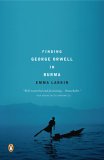Summary | Excerpt | Reviews | Beyond the book | Read-Alikes | Genres & Themes | Author Bio

To compare Colin Thubron's writing
to most travel books is to compare the beautifully
crafted treasures inside the museum to the tawdry
baubles offered for sale on the steps outside.
Entire sections in bookstores are
devoted to travel books, and TV travel programs take
the viewer to every corner of the globe. Well,
actually, not every corner - usually it's the same
tired old landmarks coming into view time and time
again. So, it is with something of a shock that the
reader opens The Shadow of the Silk Road to
be reminded that travel writing used to be a high
art and, in the right hands, still can be; and
those hands don't get much better than travel
veteran Colin Thubron, who travels light with no
camera and just a change of clothes, his money
concealed in a gutted bottle of mosquito repellant.
No camera? But that means no pictures! A travel book
with no glossy photos of wizened tribal elders and
dirty faced but oh so adorable children; why would I want to read that? The
short answer is that Thubron's writing doesn't need
pictures. It is often said that
a picture is worth a thousand words - which is
undoubtedly true up to a point; but one has to ask
oneself whether pictures give the full story or even
the accurate story, as the viewer tends to interpret
images based on what they expect to see overlaid by
their own cultural references. Page after
page, Thubron's words tell a thousand pictures,
bring alive not just the people and places of today
but of
yesterdays long past.
Thubron draws a thread through the complex history
of Asian history's fluid borders as he travels
through Central China, and then across more than
2000 miles of Turkic speaking lands and the Middle
East to arrive at the Mediterranean coast.
Across more than 5000 miles of ancient trade routes,
he travels by rail, bus, bicycle, foot and by
hitching rides; crossing lands that he has traveled
for the past 40 years, enabling the reader to see
them not just as they are today, but as they were in
recent time, and in the distant past.
We begin to
understand the legacy of the people and places, but
also we start to grasp the extraordinary transition
overtaking these multiple lands, mostly emerging
from either China's cultural Revolution or Soviet
control. We see the generational divide, meeting
young people looking to the future, while their
parent's generation has become largely redundant,
their experiences of little interest. As Thubron
puts it "Since the holocaust, my world has made a
duty of remembrance. Russia, like China, had chosen
forgetfulness".
Shadow of the Silk Road is Thubron's ninth
travel book; it may possibly represent his last
major journey. At 68-years-old he maybe ready to
turn in the 3rd class hard seat for softer living.
The reader can only hope that isn't the case because
Thubron is a valuable eyewitness to the changing
face of Asia and a charming, erudite, modest travel
companion, who has a genuine compassion and patience
for his fellow man and, as one reviewer puts it, "a
cleric's knack for engaging the locals and
extracting from them their true confessions."
Colin Thubron was born in London in 1939.
Educated at Eton College, he worked briefly for the
publishers Hutchinson and as a freelance television
film-maker in Turkey, Japan and Morocco. His first
three books were about the Middle East: Mirror to
Damascus, was published in 1967 and is still
considered one of the best books on the Syrian
capital; The Hills of Adonis: A Quest in Lebanon
(1968) and Jerusalem (1969).
Among the Russians (1983) describes a journey
he made by car through western Russia during the
Brezhnev era. Behind the Wall: A Journey through
China (1987) won both the Hawthornden Prize and
the Thomas Cook Travel Book Award.
The Lost Heart of Asia (1994) narrates his
travels through the newly-independent central Asian
republics, exploring the effects of the collapse of
the Soviet Union on the region; and
In Siberia (1999) he explores the enormous
and mysterious Russian territory of Siberia.
He is also the author of several novels, including a
historical fiction, Emperor (1978), set in
A.D. 312; A Cruel Madness (1984), winner of
the PEN/Macmillan Silver Pen Award; Falling
(1989); Turning Back the Sun (1991), a
haunting tale of love and exile; and Distance
(1996). His most recent novel, To the Last City
(2002), tells the story of a group of travelers in
Peru.
A Fellow of the Royal Society of Literature since
1969, Colin Thubron is a regular contributor and
reviewer for magazines and newspapers including
The Times, the Times Literary Supplement
and The Spectator. He lives in London.
Interesting Link: Additional content about the book can be found at HarperCollins.
![]() This review was originally published in The BookBrowse Review in October 2007, and has been updated for the
July 2008 edition.
Click here to go to this issue.
This review was originally published in The BookBrowse Review in October 2007, and has been updated for the
July 2008 edition.
Click here to go to this issue.

If you liked Shadow of the Silk Road, try these:

by Edward Beauclerk Maurice
Published 2006
As spare, gleaming, and exhilarating as the Arctic wastes and the gentle, stoic Eskimos who had mastery of this realm. His translucent prose is a sparkling and moving record of a bygone way of life.

Finding George Orwell in Burma
by Emma Larkin
Published 2006
A brave and revelatory reconnaissance of modern Burma, one of the world's grimmest and most shuttered police states, using as its compass the life and work of George Orwell, the man many in Burma call simply "the prophet"
Your guide toexceptional books
BookBrowse seeks out and recommends the best in contemporary fiction and nonfiction—books that not only engage and entertain but also deepen our understanding of ourselves and the world around us.